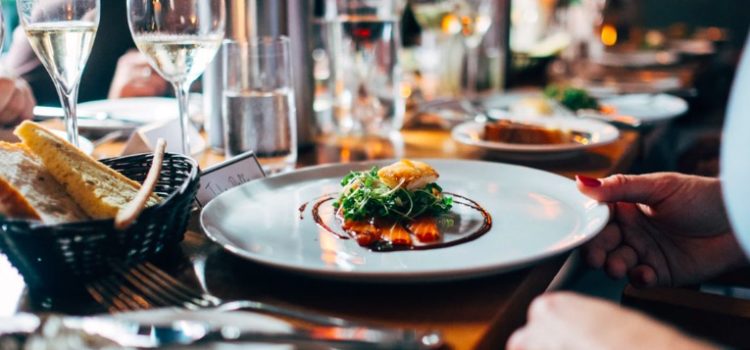

This article is an excerpt from the Shortform book guide to "Unreasonable Hospitality" by Will Guidara. Shortform has the world's best summaries and analyses of books you should be reading.
Like this article? Sign up for a free trial here.
How did Eleven Madison Park become the number-one restaurant in the world? What lessons did Will Guidara take away from this journey?
In 2010, Eleven Madison Park placed 50th on the World’s 50 Best Restaurants list, mortifying Will Guidara. So, he committed to making EMP the world’s best restaurant, which he achieved in 2017.
Keep reading to learn how Will Guidara and Daniel Humm successfully transformed EMP into the world’s best restaurant.
They Got Creative
Guidara defines “unreasonable hospitality” as a level of dedication to providing guests with a fantastic experience that stretches the limits of what seems sensible. However, Guidara saw an inherent tension between this concept and running a food business. After all, as a customer, you purchase the experience at restaurants—but the act of purchasing detracts from the hospitality of this experience by highlighting that you’re exchanging money for a service rather than making a connection.
As a result, Guidara decided to hide everything that felt too businesslike and detracted from the experience of hospitality to create the number-one restaurant in the world. This required him to get creative in unexpected areas. For example, the most businesslike element of a meal at the restaurant is when you pay for it. To make that a hospitable experience, Guidara decided that when each table received a check, they’d also receive a full bottle of nice cognac and instructions to have as much as they liked. As a result, even receiving the check felt like a nice gesture because it was combined with a gift.
| Does Guidara’s System Work in Other Restaurants? Guidara works extensively to hide the financial aspect of hospitality and emphasize the connection between the restaurant and its guests. However, one writer contends in a 2023 piece that restaurant guests have become increasingly demanding, and service industry professionals must present clear boundaries to protect themselves. For example, in contrast to Guidara hiding the check with a cognac bottle, several high-end restaurants now demand money before diners even arrive with a non-refundable deposit meant to prevent no-shows. Guidara’s creativity regarding hiding the businesslike aspects of the restaurant may have only worked because he had few financial worries (like no-shows); by 2012, EMP had a 200-person waiting list every night. |
They Systematized Gifts
As Guidara was looking for ways to provide unreasonable hospitality, he overheard a table of tourists who’d chosen EMP for their last meal in New York. The group mentioned that they’d eaten everything they’d wanted to eat—except for a classic New York hot dog. So Guidara ran out to purchase some, had Humm plate them, and served these hot dogs to the guests as one of their courses, explaining to them that he’d overheard their conversation and wanted to provide them with the best possible experience. The delight of the guests convinced Gudiara that this was something he should be doing regularly—and so Guidara systematized such gifts in two ways.
First, he created a position dedicated to providing unexpected gifts. Guidara understood that, while a meal at a restaurant is by definition consumed, the guests could relive their restaurant experience as long as they had a great story to tell. As a result, he started hiring “Dreamweavers”—people whose job it was to research the guests beforehand or listen during their meals and provide personalized touches to awe the guests and give them a great story. For example, the Dreamweavers turned the private dining room into a makeshift beach for a couple who unexpectedly couldn’t make their planned beach vacation.
Second, Guidara created standard gifts for repeatable moments. The personal nature of the Dreamweavers’ gifts sometimes meant that they were expensive, but Guidara found a more budget-minded way to systematize gifts. He looked for repeatable moments—the memorable things that happened regularly at the restaurant—and created standard gifts for those moments. For example, many couples got engaged at EMP. So Guidara partnered with Tiffany to create custom champagne flutes; he’d pour them a champagne toast in the flutes at EMP and gift them the flutes in Tiffany boxes.
They Educated Their Employees
In 2010, Guidara and Humm received an offer to run The NoMad, a restaurant in a new luxury hotel opening a few streets away from EMP. Guidara and Humm were thrilled at the opportunity to bring fine dining back to hotels, whose restaurants had depreciated in quality over the years. However, Meyer couldn’t justify allowing the pair to run EMP while also owning a competing restaurant nearby—and offered to sell EMP to them instead. Guidara and Humm agreed to the sale and by 2012, they were running both The NoMad and EMP under the umbrella of their new company, Make It Nice.
(Shortform note: Guidara and Humm‘s success with The NoMad sparked a trend of hiring famous chefs at hotel restaurants. But it may never have occurred if Meyer hadn’t predicted the challenges he might face: In a New York Times interview, Meyer explained that he agreed to sell EMP in part because he didn’t want to try to re-invent the restaurant without Humm and Guidara.)
The NoMad received three stars in its first New York Times review—a feat Guidara attributes largely to how successfully the employees quickly embodied the team’s culture of unreasonable hospitality. To achieve this, Guidara prioritized educating the new employees. He spent a lot of time training the staff—both by providing booklets on the culture and bringing in mostly long-time EMP employees to manage The NoMad—so that they could embody Make It Nice’s culture effectively from the first day the restaurant was open.
(Shortform note: In What You Do Is Who You Are, Ben Horowitz contends that a company’s culture derives from what leaders state explicitly and also what they enforce implicitly. Guidara exemplified both: He explicitly told The NoMad’s team what the culture was by providing them with a culture booklet and implicitly taught them the culture by bringing in long-time EMP employees. Without both, The NoMad might not have developed the culture that garnered them three stars. In How Will You Measure Your Life?, Clayton Christensen warns that if leaders define a culture but don’t embody or enforce it, the company will evolve a different culture based on the priorities and processes that have worked and become embedded.)
They Acknowledged Their Failings
Despite The NoMad’s success, it wasn’t all smooth sailing back at EMP. While opening The NoMad, Guidara remained general manager of EMP because he didn’t think anybody else was prepared for the job. But the EMP team struggled to move forward without a clear supervisor to make the final call on important decisions. Guidara finally agreed to promote a longtime employee to GM after a tough conversation with a friend and colleague led him to realize that his decision not to promote anyone was doing the EMP team a disservice.
EMP also faced a blow after receiving terrible press in September 2012. The Times published an unflattering column after the restaurant introduced a new tasting menu, which the servers delivered with a memorized speech about each dish. (Fortunately, the column wasn’t an official review that would have done far more damage to the business.)
Guidara learned from both these incidents to acknowledge his failings so that he could work around them. Both his refusal to promote anyone to GM of EMP and his demand that the servers memorize a speech to share with guests demonstrated a lack of trust in his employees: He didn’t trust anybody to run EMP, and he didn’t trust his servers to judge how much information individual customers wanted to learn about each dish. So Guidara learned that he was too much of a perfectionist and needed to let go and give his team the control they needed to do their jobs well.
| The Hidden Benefits of Perfectionism and How to Combat It Anyway In The Gifts of Imperfection, Brené Brown argues that perfectionism is often an attempt to try to control other people’s perceptions of you. So while it was perfectionism that caused Guidara to make decisions that damaged the health of his restaurants, one could argue that this same perfectionism was what caused him to reverse course, given that he gave his employees more responsibility only after it became apparent that other people (specifically, the EMP team and the Times critic) had developed a poor perception of him. Guidara caught his perfectionism in time, but not all leaders do. In The Laws of Human Nature, Robert Greene warns that perfectionist leaders often burn out because they spend so much time trying to control everything. So if you’re a perfectionist leader and want to follow Guidara’s example by giving your employees greater control, look for signs that they’re ready—such as doing well in their current role and being eager to take on more responsibility. |
They Kept Evolving
By 2015, EMP was thriving. After taking the criticism they’d received in 2012 to heart, the restaurant’s popularity had exploded and it rose in the World’s Best Restaurant ranking every year. So Guidara was disappointed when their ranking slid for the first time—going from fourth to fifth place. This disappointment prompted Guidara to re-evaluate the restaurant. After he and Humm shared a meal at EMP, they realized the problem. In their chase to become the world’s best restaurant, they’d added on so many elements that they were disrupting the diners’ ability to enjoy their meal.
So EMP evolved again. But this time, instead of adding elements, Guidara removed them, keeping only those that embodied the culture of unreasonable hospitality to its fullest. For example, they realized that serving a pre-set menu and not allowing the guest to decide what they wanted to eat wasn’t a hospitable practice. So instead, they served a meal based on a pre-meal conversation with the guest where she explained what she was and wasn’t in the mood for. These changes allowed Guidara to finally provide the fantastic experience he’d been aiming for—and in 2017, his efforts were rewarded when EMP was voted the World’s’ Best Restaurant.
| How Others Respond to Criticism By revisiting and changing aspects of EMP after their disappointing ranking, Guidara and Humm embodied what How to Stop Worrying and Start Living author Dale Carnegie implies is the ideal response to criticism. Carnegie contends that the best way to deal with justified criticism is to recognize that it’s a valuable learning opportunity. The EMP owners recognized that the criticism was legitimate and used it as a jumping-off point to re-evaluate and adapt their actions. Not all restaurant owners reacted the same way. In 2019, the World’s 50 Best Restaurants chose not to allow previous #1 restaurants on the list; in other words, Eleven Madison Park can never again be the World’s Best Restaurant. This decision was criticized in part because it was proposed by chefs whose restaurants’ rankings had fallen (and their reputations along with it). |

———End of Preview———
Like what you just read? Read the rest of the world's best book summary and analysis of Will Guidara's "Unreasonable Hospitality" at Shortform.
Here's what you'll find in our full Unreasonable Hospitality summary:
- How Will Guidara turned Eleven Madison Park into the World's Best Restaurant
- Why service-based businesses should go above and beyond for customers
- Guidara's lessons he learned from each stage of his business journey






